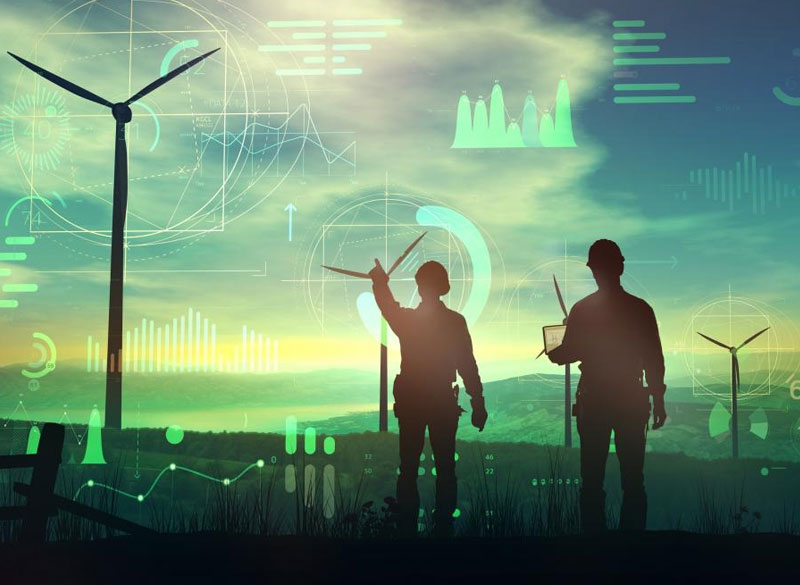Energy Saving Week: Consuming as if We Had 1.8 Worlds at Our Disposal

Professor Dr. Natalya Ketenci highlights the urgency of energy saving, especially for countries like Türkiye, which are not rich in energy resources. According to her, we are consuming our planet 1.8 times faster than it can regenerate. Professor Ketenci emphasizes, "For institutions, the most crucial action is investing in the circular economy and renewable energy."
Professor Dr. Natalya Ketenci, a Yeditepe University's Economics Department faculty member, made statements regarding the Energy Saving Week from January 11th to 18th.
"Saving Is Very Important for Countries Like Türkiye"
Professor Dr. Natalya Ketenci mentions the importance of saving due to the scarcity of energy resources, particularly for countries lacking abundant energy sources like Türkiye. "According to the National Footprint and Biocapacity Accounts 2022, humanity is consuming nature 1.8 times faster than our planet can renew itself. It's as if we are living as though are 1.8 worlds available to us. For Türkiye, this figure is 2.1. It's as if we have 2.1 times the resources of Türkiye and are consuming accordingly," she said.
To implement energy saving most efficiently, Professor Ketenci points out the significance of the "Circular Economy" as a vital economic model. "In this model, we can obtain products from waste materials, without using new resources. The product is designed to be recyclable right from the production line," she explained.
"Investment Should Be Made in Circular Economy and Renewable Energy"
"The most important measure for institutions is to invest in the circular economy and renewable energy," Professor Dr. Natalya Ketenci continued, "John Rockefeller became the world's largest fuel producer because he did not tolerate a gram of waste in fuel production. He started using products considered waste in the past for gasoline production and gained the most significant profit from this product. In the circular economy, we use what we have without needing new resources. Of course, a country or institution cannot change overnight. Developing new technology requires time and investment."
"Education From Kindergarten"
The most critical individual measure is education, starting in kindergarten and primary school, according to Professor Dr. Ketenci. She emphasized the importance of waste separation as a subject for all ages. "Young people are slowly getting accustomed to the circular economy, but the middle- aged and older generations have gotten used to living as consumers rather than savers," she remarked.
"Circular Economy: Multidisciplinary Approaches from Türkiye"
Under the editorship of Professor Dr. Natalya Ketenci and with contributions from academics at Yeditepe University's Faculty of Economics and Administrative Sciences, a book titled "Circular Economy: Multidisciplinary Approaches from Türkiye" was published last month in England.
Professor Ketenci noted that despite the abundance of resources on the circular economy internationally, this book is the first to include examples from Türkiye. The book examines the status of the circular economy in different sectors, addressing the question, "How circular is the energy sector in Türkiye?"
"The Most Likely Alternative for Türkiye Is Solar Energy"
Highlighting that the energy sector leads in polluting the environment worldwide, Professor Ketenci summarized the situation of Türkiye's energy sector as follows:
"The energy sector in Türkiye is characterized by its dependence on high-level energy resources and continuous increase in energy costs, which complicates economic growth. Therefore, Türkiye plans to improve its renewable energy infrastructure and reduce its energy dependency, similar to Europe.
Solar energy is the most probable alternative for non-renewable energy in Türkiye. Technological advances make solar energy an efficient alternative to natural gas for electricity production and water heating without carbon emissions. However, using solar panels produced from scarce and toxic materials causes further environmental damage. Non-recycled solar panels produce 300 times more waste than nuclear power plants. Various funds support research on technologies that will include the solar energy sector in the circular economy and make it green worldwide. Türkiye is involved in circularity research for the energy sector, but this is a longer process."
"More R&D Should Be Done"
Transitioning to a green economy also brings the issue of non-recyclable toxic batteries used in electric vehicles, according to Ketenci. "The transition to a green economy in Türkiye, like in other countries, is not without problems. Therefore, continuous and advanced research is necessary to ensure the transition to a green economy is as clean as possible," she stated.